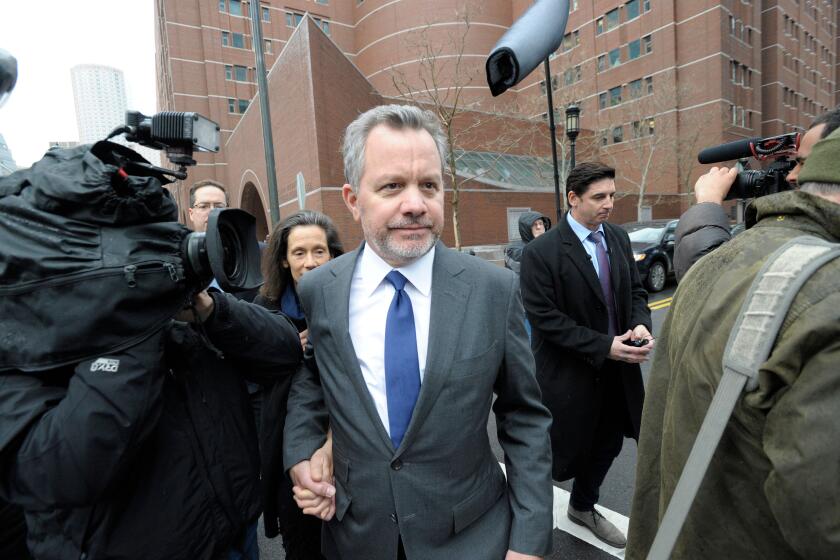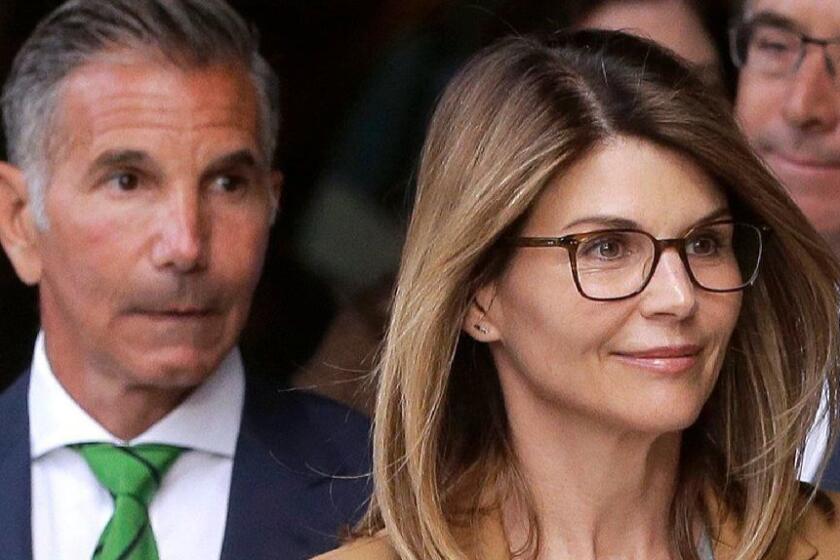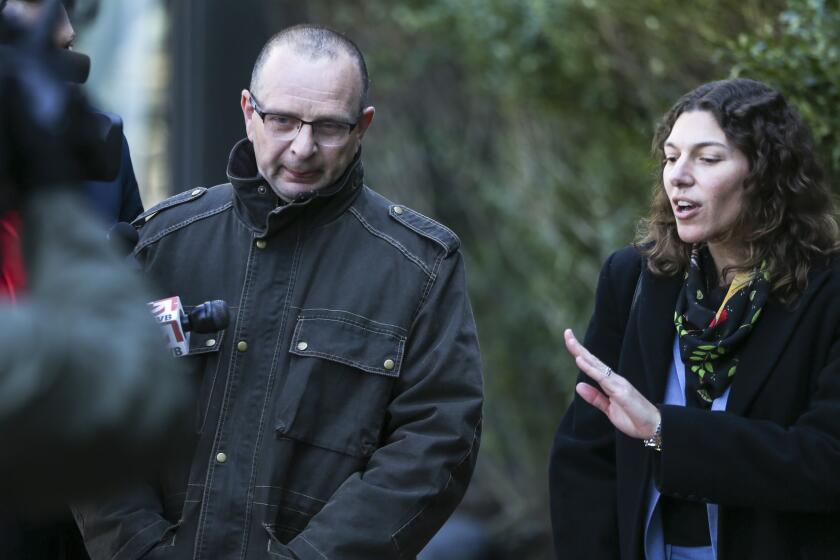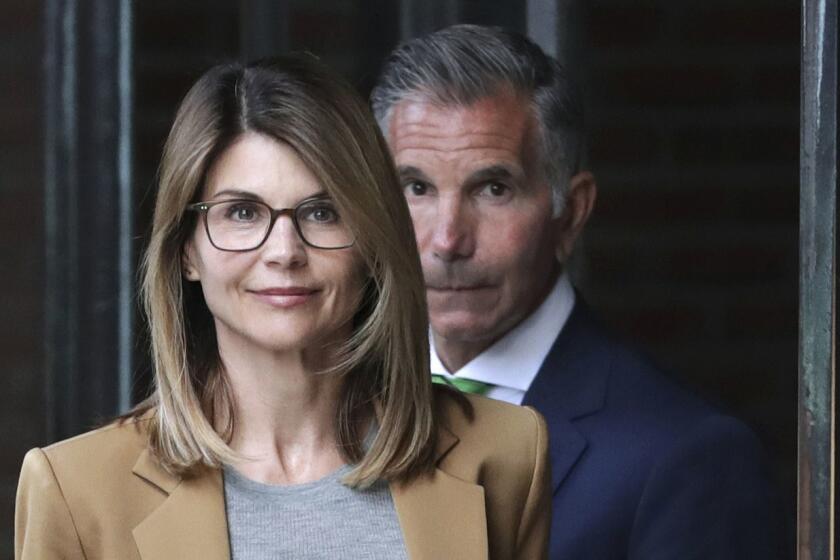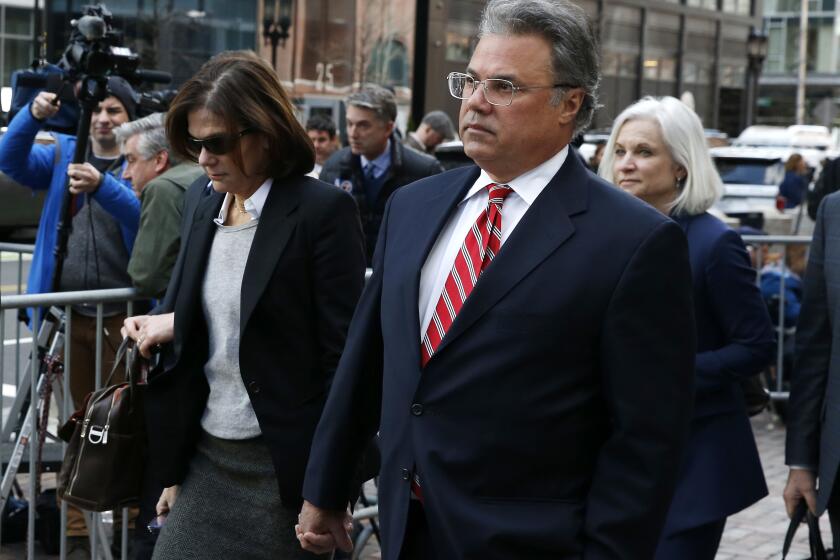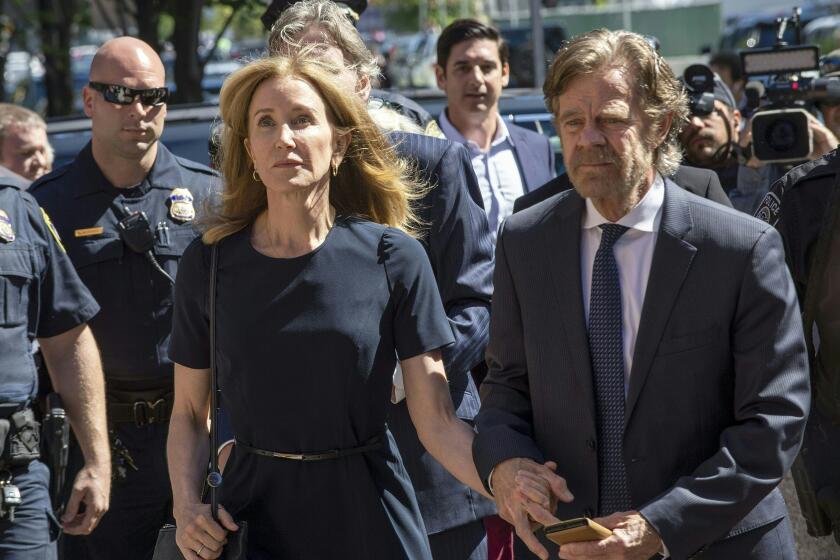Admissions scandal: Charged parents try to drag USC into the fray
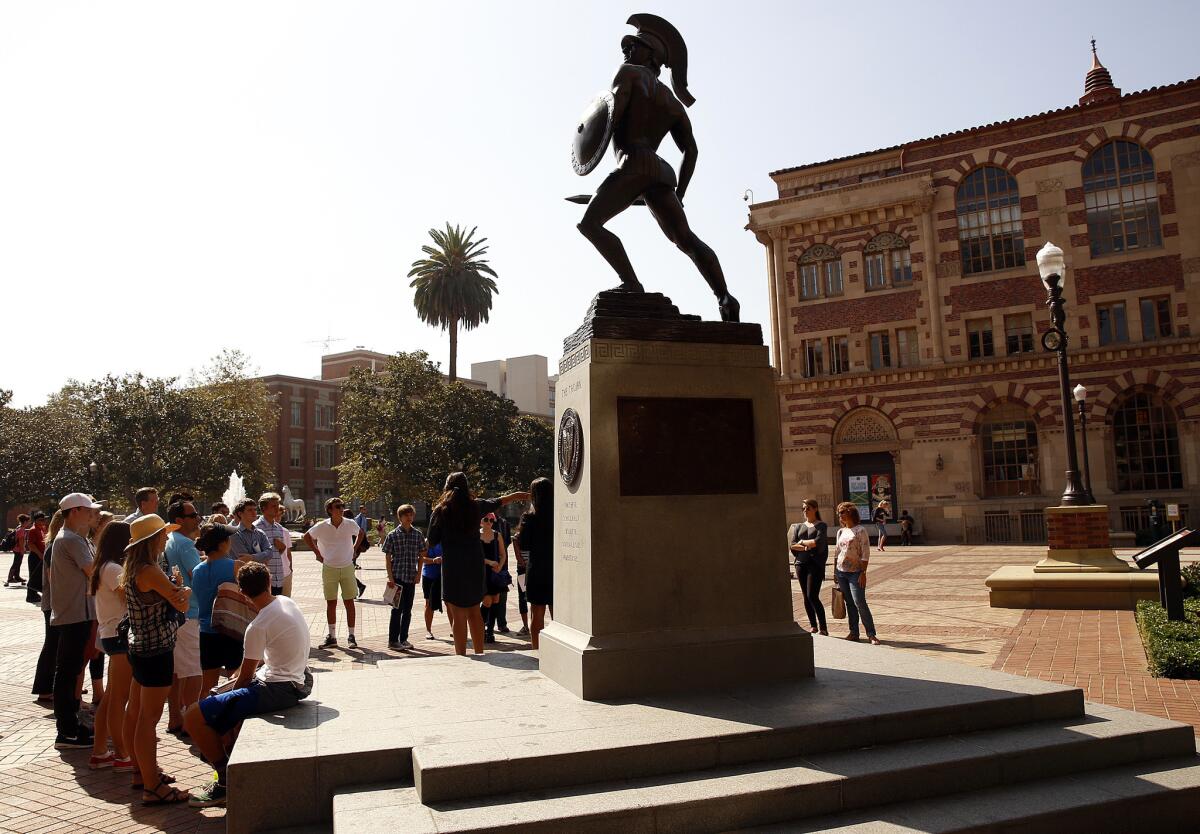
- Share via
From the start, federal prosecutors have tried to make the college admissions case a straightforward story about greed.
But in the nine months since, the case has turned murky.
In the government’s telling, wealthy parents, college coaches, and others conspired with William “Rick” Singer, a Newport Beach consultant who used bribes and fraud to rig college entrance exams and buy spots at top-tier schools for the children of clients.
The case generated national outrage when it was unveiled in March, as people railed against the unfair advantage the rich and powerful enjoy when it comes to college admissions. Prosecutors scored early victories: Many of the 54 people charged in the case pleaded guilty, and all but two of them were sentenced to prison.
Lawyers for parents whose children were admitted to USC through alleged fraud and bribery are now trying to drag the school into the fray, seeking — among other things — sensitive internal documents that they believe will shed light on how the school has courted wealthy donors and the role donations play in admissions.
Attorneys for William McGlashan Jr., charged in the college admissions scandal, say prosecutors are withholding evidence that could help exonerate him.
A lawyer for Robert Zangrillo, a father accused of paying $250,000 to Singer and an accomplice to get his daughter into USC, made the first move for this information in August, when he tried to subpoena the school for fundraising and admissions records, including a database of donors and the percentage of applicants admitted within a year of their families donating $50,000 or more.
USC has fought to quash the subpoena, arguing it is overly broad and seeks information irrelevant to the case. A judge instructed the two sides to try to reach a compromise.
Earlier this month, lawyers for other parents charged in the case followed up with demands for a slew of records from the government, including information about USC’s fundraising.
The attempt to turn the focus onto USC makes sense, defense experts said, but it remains to be seen how far judges in the case will allow defendants to pursue it.
“You can’t blame them for trying,” said James Felman, an attorney and expert on fraud crimes who isn’t involved in the case. “The idea, though, that they are going to turn this into a trial about how a school seeks donations is hard to see.”
Lori Loughlin and Mossimo Giannulli’s legal team want access to FBI documents they say would show the couple thought their donations were legitimate.
A spokeswoman for the U.S. attorney’s office in Boston, which is handling the case, declined to comment.
Even if parents succeed at drawing attention to the influence fundraising bears on USC’s admissions decisions, some defendants must still account for seemingly deliberate steps they took to perpetrate the alleged fraud, such as staged or manipulated photographs used to pass their children off as top athletes, and recorded phone calls indicating they were familiar with the details of the recruiting scheme.
Singer has admitted orchestrating the scam and cooperated extensively with the government.
Fifteen parents charged in the case have pleaded not guilty. In preparation for possible trials this year, their attorneys have asked that a judge order prosecutors to hand over documents they believe could be helpful to their defense. Prosecutors have told defense attorneys they have not withheld any relevant documents, according to court papers.
Some of the records in question deal with Singer, whose honesty and reliability as the government’s chief witness is expected to come under fire. A deceitful and self-serving Singer, defense attorneys have argued, duped his clients into believing their payments were legitimate donations to universities, even as he repurposed the money into bribes to coaches and school officials.
Igor Dvorskiy acknowledged role in college admissions scandal, saying he let ‘Rick’ Singer run a test-fixing scam out of his West Hollywood school.
Of the 15 parents who have pleaded not guilty, 11 are accused of exploiting Singer’s athletic recruiting scam to get their children into USC.
Singer operated differently at the Los Angeles campus than at other schools. At Georgetown, for example, prosecutors say he sent $100,000 checks directly to the tennis coach in exchange for admission spots that were earmarked for tennis recruits.
Singer had similar arrangements with two former USC soccer coaches who have pleaded guilty, Ali Khosroshahin and Laura Janke. But he instructed most of his clients seeking to get their children into USC to send checks to him and to university accounts that prosecutors say were controlled by two alleged conspirators, Donna Heinel, a former top administrator in the athletic department, and Jovan Vavic, the school’s former water polo coach. Heinel and Vavic have pleaded not guilty.
The fact that money was funneled into USC bank accounts has given parents a toehold to make the case that they believed their payments were legitimate donations. They also contend USC could not have been the victim of an alleged conspiracy if money was flowing into its coffers.
Attorneys for Gamal Abdelaziz, a casino magnate whose daughter was allegedly admitted to USC as a fake basketball recruit, called it a “dubious” and “novel” reading of the law that “a payment to the very same institution that is allegedly defrauded of its employee’s honest services is a bribe.”
College admissions scandal: Lori Loughlin faces choice as other parents plead guilty and her daughters exit USC
Between 2014 and 2018, Singer’s clients paid more than $1.3 million “to USC accounts controlled by Heinel,” according to an indictment charging her and Vavic with conspiracy to commit racketeering, fraud and bribery. The account that funded Vavic’s water polo program was infused with $250,000, the indictment says.
Prosecutors have said in filings and in court that Heinel and Vavic benefited from payments to those accounts. In statements to The Times, attorneys for both former USC employees cast doubt on that assertion. Nina Marino, who represents Heinel, said she does not understand “how the government can demonstrate that our client personally benefited from any donation made to USC for the benefit of programs and facilities for the school.”
Stephen G. Larson, who represents Vavic, said the coach was “not only encouraged but effectively required” to raise money for his program, and that those efforts were “fully endorsed and facilitated by university officials.” He denied that Vavic ever took part in fraud, accepted a bribe or recruited an applicant with substandard athletic or academic credentials.
Other USC coaches and administrators faced similar expectations of fundraising, Larson said, and the case brought against Vavic “ignores the reality that at USC, a parent’s ability and willingness to contribute to the university, including to athletics, influenced admissions decisions.”
Glenn Osaki, a spokesman for the school, said that like at all major universities, coaches at USC can raise money for their athletic programs “in manners consistent with university policy.”
Federal prosecutors are ratcheting up pressure on parents who have maintained their innocence in the college admissions scandal with a warning they intend to file additional criminal charges as early as next week.
“When it became clear that Vavic’s actions were inconsistent with university policy, he was terminated,” Osaki said.
Prosecutors have also pointed to payments Singer allegedly made directly to Heinel and Vavic. In July 2018, Singer began paying Heinel $20,000 per month in what prosecutors allege was a sham consulting retainer. Singer also paid for the private school tuition of Vavic’s children “under the guise of a fabricated scholarship,” the indictment says.
Abdelaziz’s attorneys have seized on Singer’s alleged monthly payments to Heinel, calling the arrangement “essentially a side deal” to redirect what Abdelaziz believed was a donation to USC toward a bribe to Heinel. The lawyers have demanded the government turn over records of its interviews with Singer regarding the alleged retainer. A magistrate judge said she wants to review those records before making a ruling.
After making sweeping arguments early in the case that Singer and his conspirators robbed universities of valuable property and business rights, prosecutors have scaled back the damage they say the schools have suffered. Eric S. Rosen, an assistant U.S. attorney, wrote in a filing that the harm the universities suffered amounted largely to the salaries they paid to employees accused of working with Singer.
USC paid Heinel, Vavic, Khosroshahin and Janke more than $2.8 million in salary while they were “secretly acting to their employers’ detriment by selling admission to athletically unqualified students in exchange for bribes,” Rosen wrote. USC also had to hire lawyers “at great expense,” Rosen said, to review the fraud internally and cooperate with his office’s investigation.
Federal prosecutors accused top CEOs, two Hollywood actresses and others of taking part in an audacious scheme to get their children into elite universities through fraud, bribes and lies.
Documenting the alleged losses to USC is an important aspect to the government’s case; in order to win convictions, prosecutors must convince jurors there were victims who were harmed financially.
More to Read
Sign up for Essential California
The most important California stories and recommendations in your inbox every morning.
You may occasionally receive promotional content from the Los Angeles Times.
